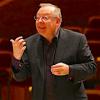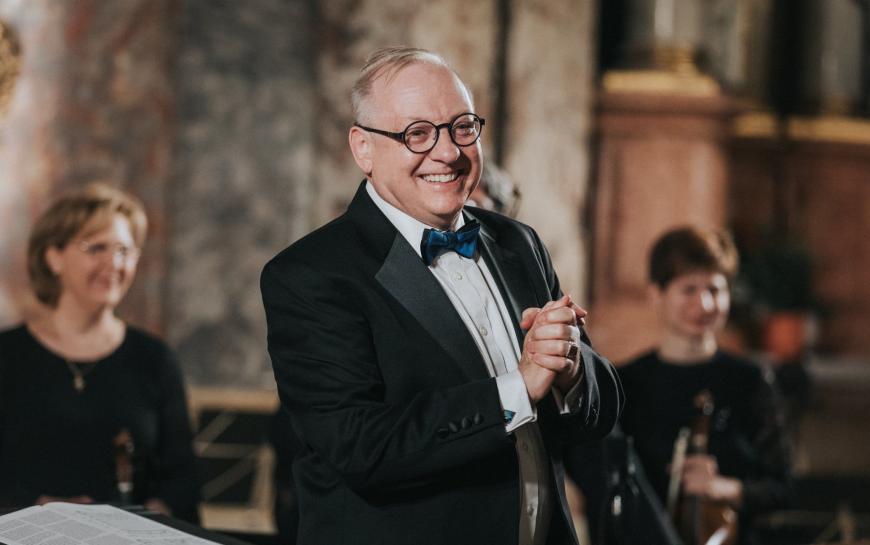
“I have certainly not retired,” Nicholas McGegan says. “Conductors, like good claret, are supposed to improve with age.”
An Energizer Bunny of conductors, McGegan, just 72 — 23 years younger than Herbert Bloomstedt, another busy maestro — and with COVID conquered and under his belt, is about to lead his 1,000th concert with Philharmonia Baroque Orchestra.
“I continue to be busy giving concerts with terrific orchestras around the country, including the Chicago Symphony, the LA Philharmonic, and The Philadelphia Orchestra. I have been to Europe frequently since 2020, leading concerts in Germany, the U.K., and Hungary.”
McGegan, born in Sawbridgeworth, Hertfordshire, has lived in Berkeley for over three decades, but his work has taken him all over the world, including much activity in the U.K. — conductor, harpsichordist, flutist, teacher at Oxford and Cambridge — where he has been awarded an OBE, one of the highest-ranking Orders of the British Empire (excluding knighthood and damehood).

McGegan’s American career began in 1979 as artist-in-residence at Washington University in St. Louis; he first guest-conducted the St. Louis Symphony in 1986 and has since returned continuously as a guest conductor. In 1985, McGegan became music director of Philharmonia Baroque Orchestra, stepping down from that position in 2020 after 35 years to become music director laureate.
He made 40 recordings with PBO and conducted 999 concerts — the pandemic delaying No. 1,000, until now. His milestone program will feature the music of the French Baroque, of which McGegan is a world-renowned specialist, having led the world premiere of Jean-Philippe Rameau’s original 1745 version of Le temple de la Gloire at Cal Performances, in collaboration with the New York Baroque Dance Company and Le Centre de musique de Versailles.
Concert No. 1,000 features three suites of dances: selections from Le carnaval de Venise by André Campra (1660–1744), a suite by the virtuoso violinist François Francoeur (1698–1787), and the program’s titular work, Rameau’s The Surprises of Love, called the “culmination of centuries of tradition, fused with a look to the future through daring harmony and convention-defying intensity.”
Of McGegan and his work with PBO, renowned violinist Lisa Weiss has much to say. She is a 30-year veteran of the orchestra, having also played under McGegan’s direction as a soloist and as one of four concertmasters — and she’s retiring after these concerts:
Nic has an uncanny way with this repertoire, and I think his Rameau projects with PBO represent some of the orchestra’s finest work over the years. He has an almost supernatural instinct for bringing out Rameau’s often extreme, turn-on-a-dime character changes and mood swings; he finds expressive possibilities which are unexpected and surprising.
A melancholy little movement in a minor key might simply be what it seems, but it might also be comical or even silly; Nic always seems to know just how to play it. He taps into the relationship of the musical gestures to spoken [or] sung French, and he manages to honor the stylistic musical traditions and tricky notational conventions of the period without ever allowing the music to sound fussy or academic.
For me, an opportunity to rehearse and perform this repertoire with Nic always promises big fun: lots of laughter and high spirits, but also heartfelt and deeply rewarding music-making.”
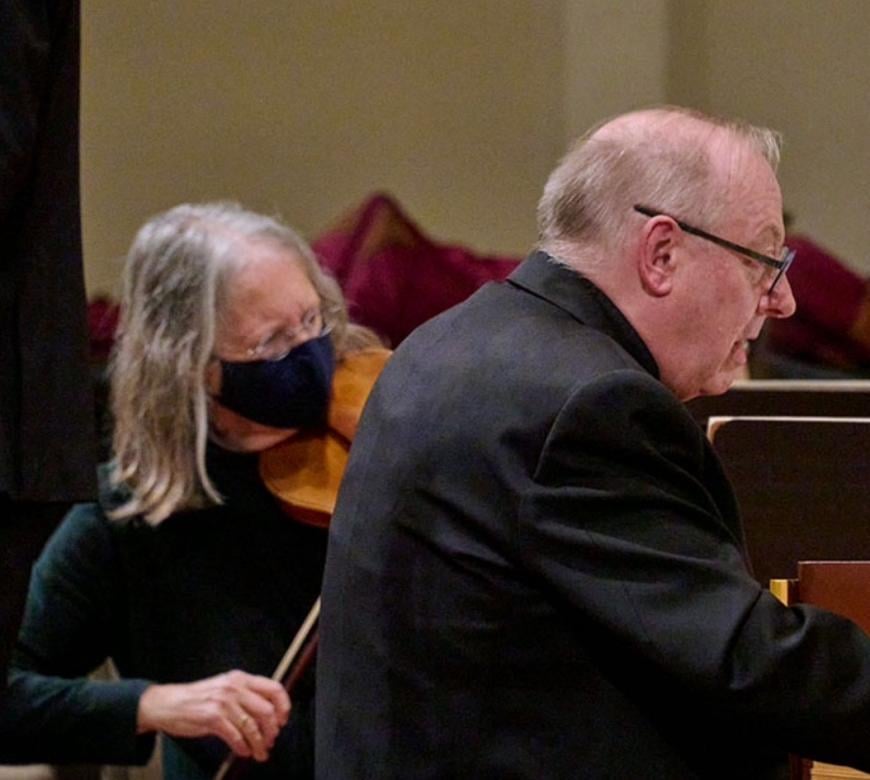
McGegan himself says of the program: “Ever since I first got into early music in the 1970s, I have always loved the French Baroque. Back then I was lucky to have worked a lot with the English Bach Festival in London. I played in several Rameau operas that were done in Covent Garden, the Alhambra in Granada, the Odeon of Herodes Atticus in Athens, and Versailles. These were all staged productions with lots of elaborate dancing. I was thrilled to conduct several of the productions and even record a couple of them.
“As a teenager, I spent several summer holidays staying with my cousins who lived in Versailles and so became enveloped in the world of the Ancien Régime quite early on. Subsequently I worked for John Eliot Gardiner in Aix-en-Provence for productions of [Rameau’s] Les Boréades and Hippolyte et Aricie, a performance that included Jessye Norman as Phèdre. I have never forgotten how thrilling that was.
“From the beginning of my work with PBO, I was very keen to increase the amount of French Baroque music in the Philharmonia’s repertoire, and over the years I am delighted to say that we performed a lot of it, not just Rameau but also Campra, [Jean-Marie] Leclair, [Jean-Féry] Rebel, [Marin] Marais, and [Jean-Baptiste] Lully. It wasn't until over 30 years later that we were finally able to mount our own fully staged production of a Rameau opera, Le temple de la Gloire, based on a manuscript score that is housed in the music library at UC Berkeley.
“In the spring of 2020, we were all set to stage Leclair’s Scylla et Glaucus both in San Francisco and Versailles, but alas the pandemic caused this project to be canceled just before rehearsals were about to start.”
Asked about his outstanding memories of working with PBO, McGegan says staged operas were his favorites. In fact, he brought several favorite Handel works to the Bay Area from the Göttingen International Handel Festival, where he was artistic director from 1991 to 2011:
“Even though they could only be semi-staged here, I still found them magical experiences. Dominique Labelle, one of the queens of great Handelian singing, brought all the fire and passion from the staged performances.
“Working with dancers is a wonderful experience, and PBO and I have had some of our best times with the Mark Morris Dance Group. Mark’s choreography for Handel’s L’Allegro, il Penseroso ed il Moderato remains one of the highlights of my time at PBO.
“For about 10 years, Lorraine Hunt Lieberson would come to sing with PBO. Her concerts were always magical, and we are fortunate that so many were recorded. Standing next to her while she sang Berlioz’s Les nuits d’été was a dream come true.” (The mezzo-soprano, who died in 2006, at the age of 52, began her music career as a violist.)
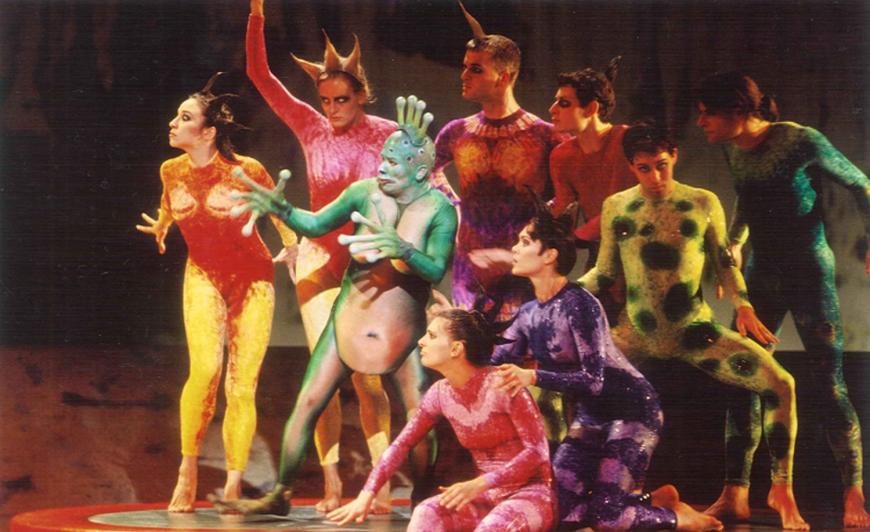
To multitudes, including this writer, the unforgettable McGegan-PBO-Mark Morris collaboration was Rameau’s Platée in Berkeley. According to Kate van Orden, bassoonist with PBO since 1998 (and professor of historical musicology at Harvard), the fun never stopped in the orchestra pit either:
“Nic captured all of its facets, the French elegance, Rameau’s harmonic complexity, and the hilarity. It was a beautiful experience, that production, with Nic in an emerald green silk shirt made specially for him by Isaac Mizrahi, the costume designer. There was so much for Nic to manage with all the stage action, coordinating with Mark Morris’s dancers, and the perils of having our lead singer in that crazy frog costume, but Nic was never more in his element, and we all had a blast.”
These highlights aside, McGegan says, “My greatest thrill is a simple one: making music with friends. I do like traveling around conducting orchestras and choruses all over the world, but some of my very best experiences have been performing with the Philharmonia Baroque Orchestra & Chorale. We have been working together for so long that so much didn’t need to be said in rehearsal. It was like performing chamber music but on a larger scale.”
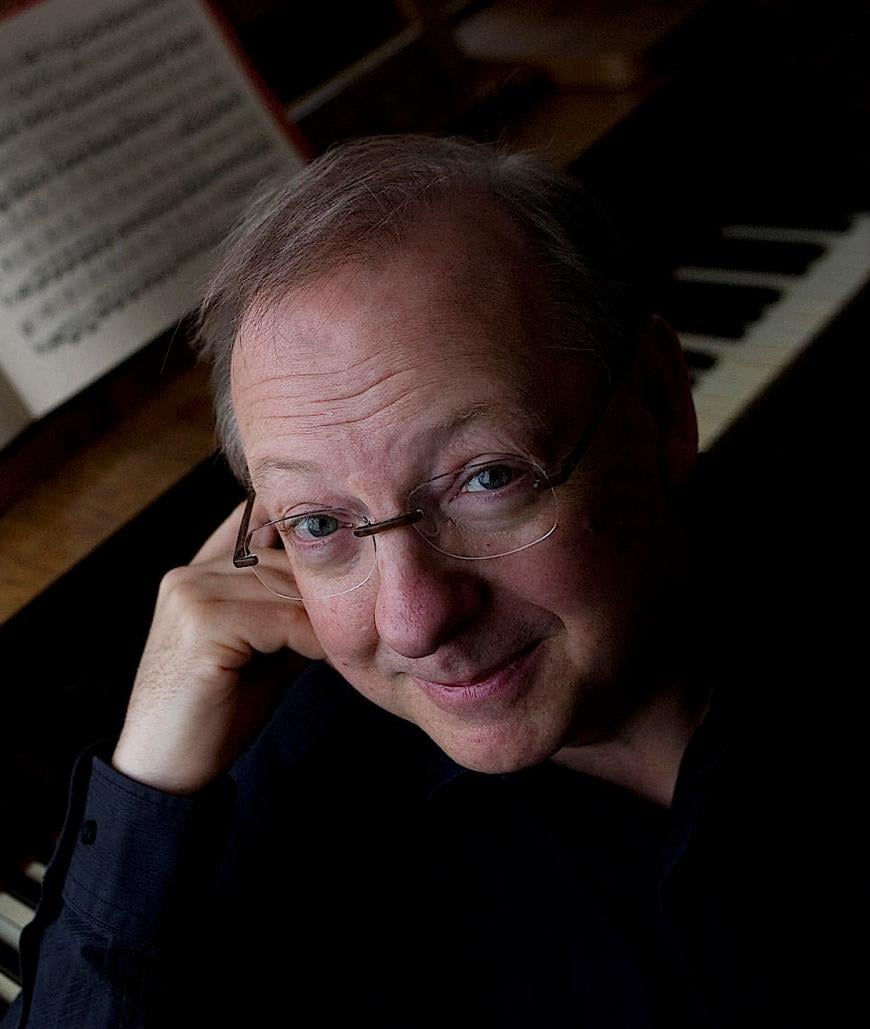
The pandemic canceled McGegan’s final concerts as music director of PBO, including that production of Scylla et Glaucus, but he kept busy in various ways. He even took the bull by the horns when the Yale Center for British Art invited him to give a video presentation on a subject of his choice. He picked the devastating outbreak of the plague that struck England in 1666 — a history with surprising relevance four centuries later during COVID.
When it comes to McGegan’s work on behalf of Baroque music around the world, some of his most significant accomplishments have been in Hungary. He led numerous recording sessions for Hungaroton and first recorded with Capella Savaria in 1984, traveling with the orchestra and eventually becoming its principal guest conductor. Most of these recordings — including Handel’s Atalanta — were made in a former synagogue, the venue now called Bartók Hall.
Hungarian singer and voice teacher Éva Lax, who participated in performances and recordings with McGegan, told SF Classical Voice: “Nic’s appearance in Szombathely [aka Savaria during the Roman Empire] in the early 80s gave a huge boost to the early-music movement in Hungary. There were initiatives already before that, but the real beginning was given by his courses. He brought us sheet music, gave lectures, and also worked with the instrumentalists and singers in practice.
“For many of us, these summers in Szombathely defined our interest in music for life. So much so that not only young musicians took part in these programs but later also a great master, namely György Kurtág, who at that time regularly stayed in Szombathely during the summer because the famous International Bartók Seminar and Festival was held there. He and his wife, Márta, regularly came over to these programs, and Kurtág also went to Nic’s rehearsals. He was delighted by his new and [his] fresh musical vision, and by his own admission, he learned a lot from him.”



